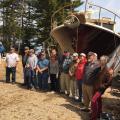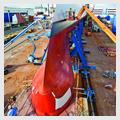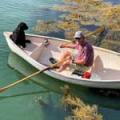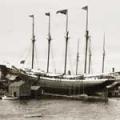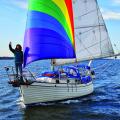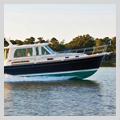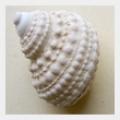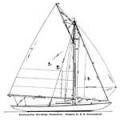Letters to the Editor - Issue 127
Issue 127
Missing Phil Bolger
Thanks to Peter Spectre for “The Last Laugh” (A Postcard in Time, Issue #125, July 2013) about Phil Bolger and Dynamite Payson launching a folding schooner. Phil was noted for weird-looking boats and many people were skeptical about his designs.
The reality is that Phil put more people on the water than anyone did, by showing that they could go down to the local lumberyard, buy some stuff, and build a simple, fun, and useful boat.
Purchasing is never as satisfying as building.
Phil also had an eye for lovely traditional designs. He contributed a lot to all of us. I miss Phil Bolger.
Paul Schwartz (a.k.a. Captain Gnat)
Beverly, Massachusetts
Red roof explained
I was reading the letters section of the May issue (MBH&H #124), wherein a fellow from Idaho asked why lighthouse buildings are nearly always white with red roofs. To find out, I contacted Ted Panayotoff, who played a big part in the renovation of the Rockland Lighthouse and is as close to a lighthouse expert as anyone I know. Here is his response:
“The color scheme of white building with red roof was specified for visibility from the water. The availability of red shingles today is an issue. When the new roof [on the lightkeeper’s house] at Curtis Island in Camden Harbor was put on it took me a bit of research to locate the correct shingles. The company was Certainteed and the model was Hatteras.”
Jan Conrad
Camden, Maine
Frankenfish what-ifs
I’ve been enjoying MBH&H all the way from Boise, Idaho, for years. I find myself disagreeing with a comment by Peter Bass (“View from the Porch,” Boat Show Issue 2013) about GMO-altered Atlantic salmon. I feel as a biologist that it is important for me to comment on Mr. Bass’s stated view concerning “Frankenfish” that for scientific reasons it not be outlawed. His reasoning was that an additional source of inexpensive protein is needed these days. That may be true, but a simplistic solution to a complex problem is often not really a solution at all.
Lack of protein is not the problem; it is one of many symptoms. The problem not being addressed seriously is overpopulation. Another symptom of that key problem is very-well known in Maine—the overharvest of wild fish stocks. Another point—an ecological one—is that we don’t know the biological and ecological implications of what we do. We don’t even know what we don’t know. On the left coast of this continent we are pen-growing Atlantic salmon, a species that is non-native to the Pacific Ocean. Now on the right coast there are efforts to grow GMO-“enhanced” Atlantic salmon whose genome is spliced with a gene from Chinook salmon—a Pacific species that is non-native to the Atlantic.
There are so many what ifs: What if individuals of these pen-raised fish escape to the wild on either coast? What is the effect of concentrating numbers of penned-raised fish on wild populations? How do such operations alter near-shore water chemistry, fauna, and flora?
Fishery scientists know some portion of the answers to these questions. Would that science rules the day… Or would that politics rules the day?
I think Mr. Bass prefers the latter and not the former…at least at the time of his writing. However, I look forward to more. Feet up…
Roy Heberger
Boise, Idaho
US Fish and Wildlife Service (retired)
Maritime navigation and time
Since picking up a copy of MBH&H while waiting for a meeting at the University of Maine, Orono, a few years ago, I haven’t missed an edition. I enjoy visiting Maine through your magazine.
During a lengthy career in the US Navy, I served on several ships and was the first designated “Navigator of the Navy.” Therefore, I took particular interest in your article “Tick, Tock, Buzz: To understand navigation, you have to understand time” (MBH&H #126).
For your readers who share my interest in maritime navigation, I suggest the book Longitude by Dava Sobel.
RADM Dick West, USN (ret)
Coventry, Rhode Island
A word from the editors
You may notice a few changes in this issue of the magazine, with the arrival of the new Editor in Chief Polly Saltonstall and Managing Editor Jennifer McIntosh. We bid farewell to Peter H. Spectre, who has retired from editing but not writing, and Gretchen Piston Ogden who is transitioning to new endeavors. We look forward to sharing the journey with you, our readers and customers, and as ever, welcome your thoughts and ideas for how to make the magazine, website, and annual summer show the very best reflection of coastal life.






